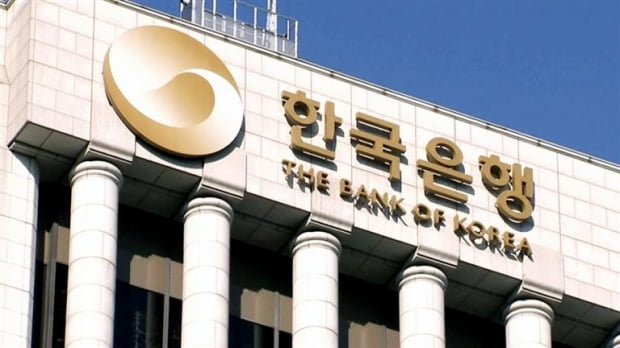
The International Monetary Fund (IMF) and the Organization for Economic Co-operation and Development (OECD) have increased the forecast for Korea’s economic growth rate. The consumer sentiment economy is also stretching. As the real economy is warming up, the analysis that it will raise the standard interest rate as early as the second half of this year is gaining strength.
BOK is expected to raise the growth rate to 3.3~3.4%
According to the domestic and foreign investment banking (IB) industry on the 26th, the BOK is expected to raise its growth rate forecast from 3% to 3.3~3.4% in its May economic outlook report.
The IMF also presented the growth rate of Korea at 3.6% in the report of the annual meeting in Korea. This is a 0.5 percentage point increase from the January forecast (3.1%). The IMF suggested 3.4%, a 0.3 percentage point increase in the draft report. However, it was raised to 3.6% by reflecting the contents of the first supplementary budget drafted by the government earlier this month.
On the 9th, the OECD also predicted that this year’s Korean economic growth rate was 3.3%. It was 0.5 percentage points higher than last December’s forecast (2.8%). This is because, as the global economy shows a recovery trend, Korea’s exports, which are highly dependent on trade, are improving. The average growth forecast of 7 global investment banks (IBs) including Goldman Sachs JP Morgan has also risen from 3.4% to 3.9% recently. Jang Min, a senior research fellow at the Korea Financial Research Institute, said, “Considering that the speed of vaccination for Corona 19 is faster, there is a high possibility that the growth rate will rise to the mid-3% range this year.”
Consumption sentiment close to the flow of private consumption is also warming up. The March Consumer Sentiment Index (CCSI) released by the BOK on the day was 100.5, up 3.1 points from the previous month. Thanks to the rising trend since January of this year, Corona 19 has surpassed 100 for the first time since January (104.8), which was just about to spread.
CCSI is an indicator of consumer sentiment. If this index is higher than 100, it means that it is more optimistic than the long-term average (2003-2019). As exports continued to increase this year and vaccination began, consumer sentiment is also rising.
Hawkpa Gold Council member appeared…”It is possible to raise the second half as well”
As the Korean economy shows signs of breaking out of the tunnel, analysis is gaining momentum that the point of the Bank of Korea’s rate hike will be accelerated. Contrary to dismissing that the policy stance is not in a hurry to adjust, the possibility of a standard interest rate increase within the year is also continuing.
In response to the Corona 19 crisis, the BOK held a temporary bank account in March last year and lowered the standard interest rate by 0.5 percentage points from 1.25% per year to 0.75% per year. In May of last year, it was further cut to 0.5% per year. After each of the six financial committees held since then, 7 members of the banking committee unanimously continued to decide to freeze the standard interest rate.
The fact that household and corporate debt is rapidly increasing due to the prolonged low interest rate is also acting as a basis for advancing the point of the base rate hike. At the end of last year, the ratio of household and corporate debt to nominal gross domestic product (GDP) was 215.5%, up 18.4 percentage points from the end of 2019. Last year, the increase was the largest on an annual basis, according to an analysis that this money flows into the asset market, threatening financial stability.
In the minutes of the base interest rate decision meeting held on the 25th of last month, a member of the Financial Monetary Commission said, “If the economy enters a recovery phase, we should put more weight on financial stability and operate monetary policy.” Preference). There are also voices from inside and outside that the BOK should preemptively respond to inflationary pressures that grow as demand suppressed by Corona 19 erupts this year.
Sang-bong Kim, professor of economics at Hansung University, predicted that “the market interest rate is continuing to rise as the economy in Korea and the United States is recovering to a normal trajectory.” There is also a growing view that the increase will be made early next year. “The BOK will raise the benchmark interest rate in the first quarter of next year,” said Park Seok-gil, head of JP Morgan’s headquarters.
Reporter Kim Ik-hwan [email protected]
